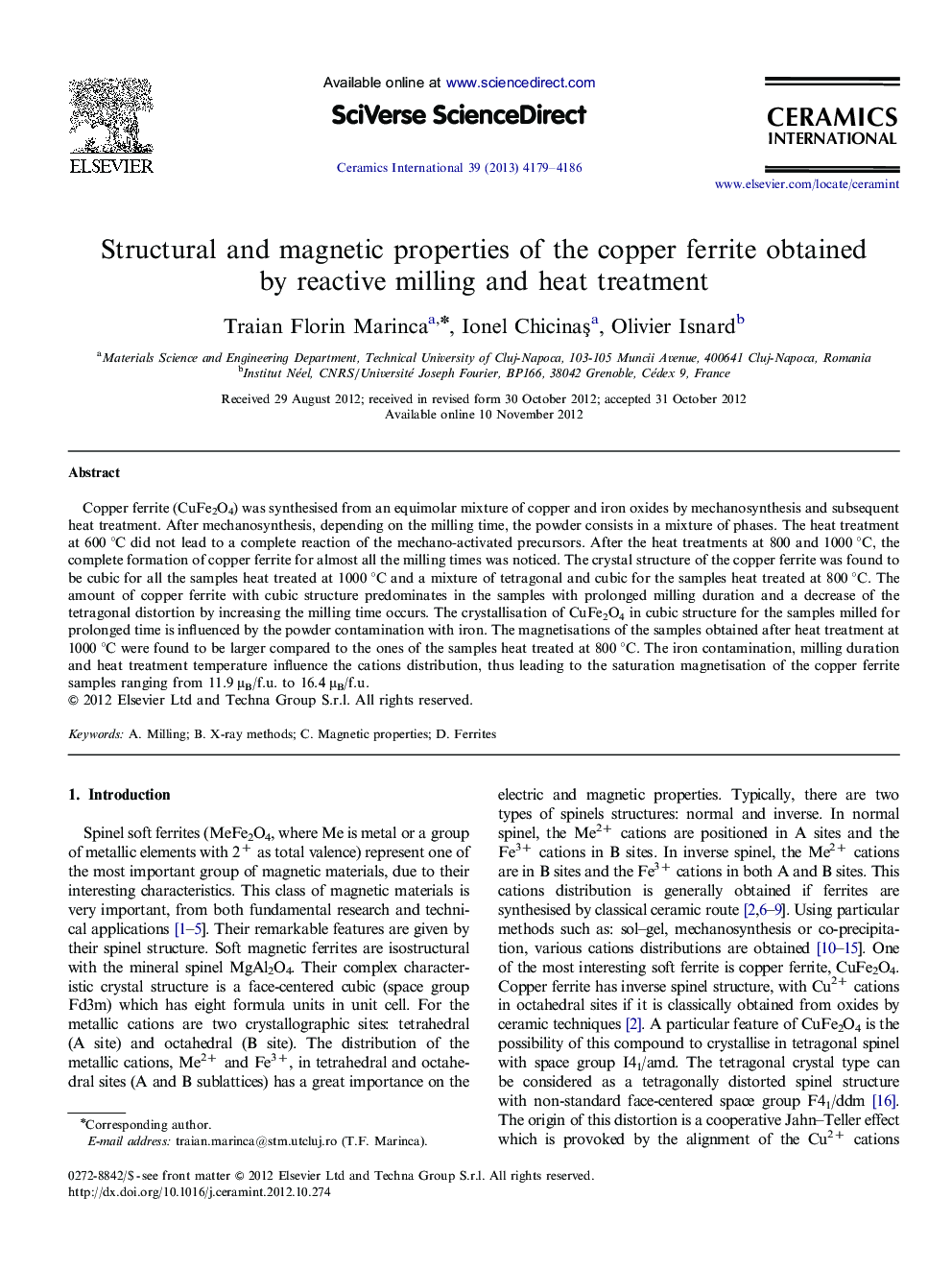| Article ID | Journal | Published Year | Pages | File Type |
|---|---|---|---|---|
| 1461795 | Ceramics International | 2013 | 8 Pages |
Copper ferrite (CuFe2O4) was synthesised from an equimolar mixture of copper and iron oxides by mechanosynthesis and subsequent heat treatment. After mechanosynthesis, depending on the milling time, the powder consists in a mixture of phases. The heat treatment at 600 °C did not lead to a complete reaction of the mechano-activated precursors. After the heat treatments at 800 and 1000 °C, the complete formation of copper ferrite for almost all the milling times was noticed. The crystal structure of the copper ferrite was found to be cubic for all the samples heat treated at 1000 °C and a mixture of tetragonal and cubic for the samples heat treated at 800 °C. The amount of copper ferrite with cubic structure predominates in the samples with prolonged milling duration and a decrease of the tetragonal distortion by increasing the milling time occurs. The crystallisation of CuFe2O4 in cubic structure for the samples milled for prolonged time is influenced by the powder contamination with iron. The magnetisations of the samples obtained after heat treatment at 1000 °C were found to be larger compared to the ones of the samples heat treated at 800 °C. The iron contamination, milling duration and heat treatment temperature influence the cations distribution, thus leading to the saturation magnetisation of the copper ferrite samples ranging from 11.9 μB/f.u. to 16.4 μB/f.u.
